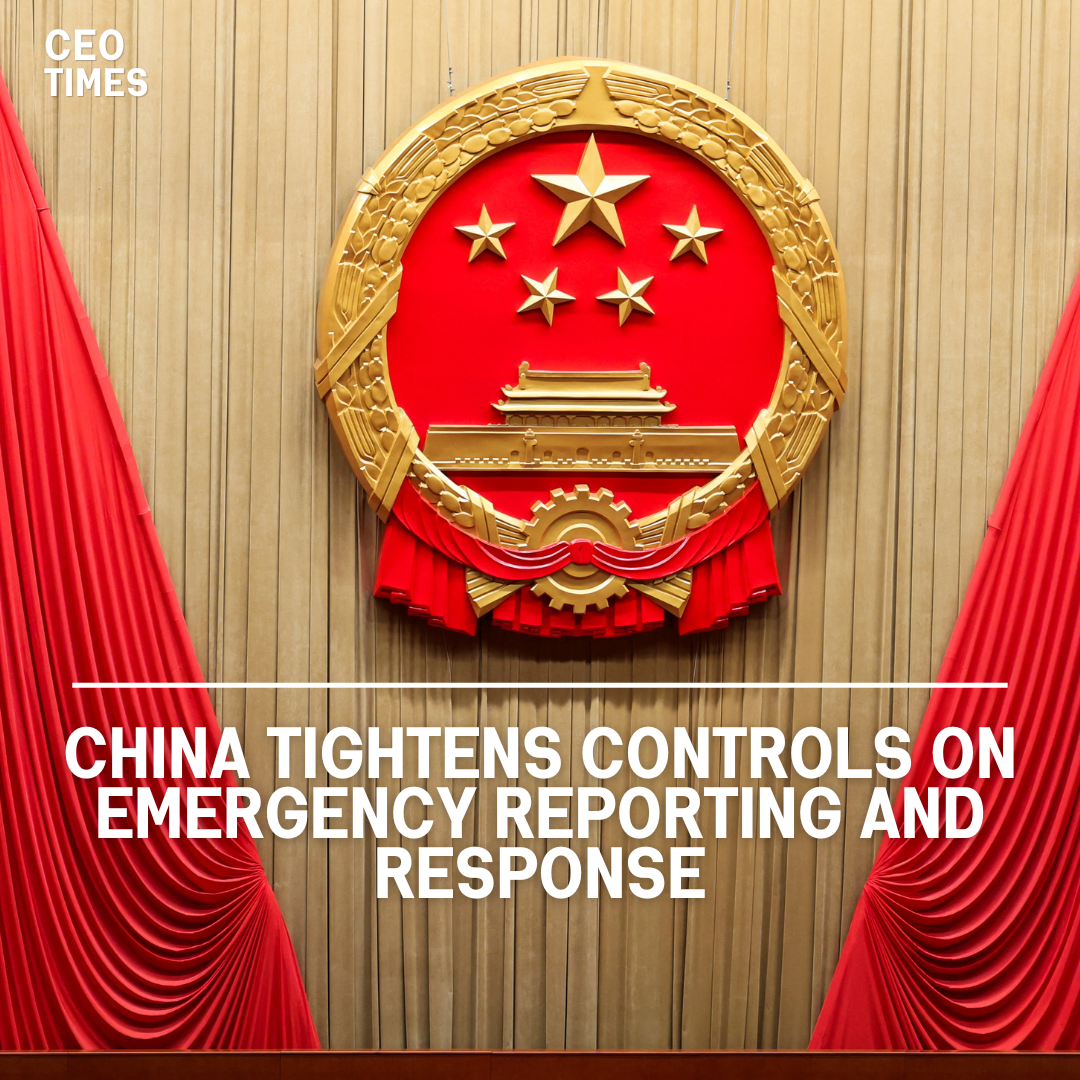China has tightened controls on handling accidents and disasters, increasing penalties for authorities that respond poorly and tightening government surveillance of media reporting on emergencies.
These legal revisions aim to improve emergency prevention and response and refine information dissemination about natural disasters, accidents, and public health emergencies.
Increased Penalties and Surveillance:
The revisions to the Emergency Response Law, announced late on Friday, aim to enhance emergency prevention and response-ability.
They include a five-fold increase in the maximum fine for failure to adequately prepare for or respond to disasters, now up to 1 million yuan ($140,000). The revisions, effective from November 1, 2024, also call for stricter government guidance over news coverage.
Media Restrictions:
The new law could further tighten media restrictions and access in a country already vigilant against reports potentially harming social stability and security.
The law mandates an enhanced “news interviewing and reporting system” for emergencies without providing specific guidelines. Government departments must guide news media, support their efforts in interviews and reporting, and supervise public opinion.
News of emergencies should be “timely, accurate, objective, and fair,” with prompt emergency warnings. Designated personnel must receive and disseminate warning information to public and crowded areas. Despite the stated aim of increasing the accuracy and objectivity of information, the law further monopolizes state control over information flows, according to Katja Drinhausen, head of the politics and society program at the Mercator Institute for China Studies.
Implications for Journalists:
The revisions impose more prescriptive terms for journalists reporting on emergencies. Jemimah Steinfeld, CEO of the UK-based Index on Censorship, noted that these changes could make reporting on emergencies even more challenging for journalists.
The law bars government agencies from instructing others to delay, falsely report, conceal information, or obstruct others from reporting. However, previous incidents of delayed official response and public backlash highlight the ongoing challenges. For example, a hospital fire that killed 29 people in Beijing last year was reported only eight hours after the incident, prompting online debate.
Impact on Foreigners and International Entities:
Foreigners in China must abide by the law and follow local government decisions and orders. This new regulatory environment means that foreigners living and working in China, media outlets, and international businesses with a presence in the country must pay close attention to emerging regulatory systems around crisis preparedness and political expectations during emergencies.
Foreign reporters sometimes face grassroots resistance and obstruction while gathering news about accidents and disasters. In 2021, a German journalist was targeted by an angry crowd while reporting on floods in Zhengzhou, accused of “slandering everything in China.” Even journalists from Chinese state media have faced harassment; in March, state media reporters were blocked and shoved while covering a blast in Sanhe, prompting a rare protest statement from the domestic association overseeing Chinese journalists.




















